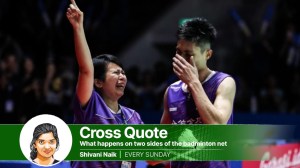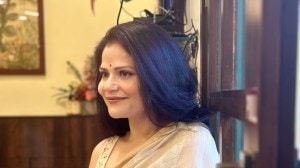SDPI claims growing membership despite PFI ban, plans to contest 100 Karnataka seats
Newly appointed poll in-charge Afsar Kodlipete says wrong to see SDPI as only Muslim party, or hijab issue as only Muslim cause; “was fighting for girls' constitutional right”
 SDPI's state in-charge of polls Afsar Kodlipete said they would be focusing on Old Mysuru, coastal Karnataka, and Kalyana Karnataka regions this time. (Facebook/Afsar Kodlipete)
SDPI's state in-charge of polls Afsar Kodlipete said they would be focusing on Old Mysuru, coastal Karnataka, and Kalyana Karnataka regions this time. (Facebook/Afsar Kodlipete)
The Social Democratic Party of India (SDPI) is looking to field 100 candidates in the coming Karnataka Assembly elections and will announce its first list around January 7, its newly appointed state in-charge of polls Afsar Kodlipete has said.
The political wing of the People’s Front of India (PFI), the SDPI was the only organisation of the radical Islamist outfit that was not banned by the Central government last year. Its ambitions for the coming elections notwithstanding, the SDPI has never won an Assembly seat in the state, though it is expected to make some political gains from the protests surrounding the BJP government’s hijab restrictions in the state.
A native of Kodagu, Kodlipete, 43, has been with the SDPI since the start and is into his second term as the SDPI general secretary. He told The Indian Express that he had covered 54 constituencies in the state already ahead of the elections and the party will soon start campaigning in earnest.
The SDPI contested its first Assembly elections in Karnataka in 2013, in alliance with the BSP, losing from all the 24 seats where it fielded candidates. However, the SDPI’s Abdul Majeed managed to give a tough contest to Congress leader Tanveer Sait, in Narasimharaja constituency of Mysuru.
In 2018, the SDPI, contesting on its own, fielded four candidates, with Majeed taking on Sait again. However, all of them lost, including Majeed.
Kodlipete said they would be focusing on Old Mysuru, coastal Karnataka, and Kalyana Karnataka regions this time. “Our 100 candidates will include not just Muslims but people from Dalit, Christian and Other Backward Class (OBC) communities,” he said.
Kodlipet said the discrimination against Dalits and the corruption that he witnessed in his village had made him join politics. “I have seen government officials demanding bribes to release widow pension and BPL cards, and Dalit discrimination in my village. If we have to change the system, we need to be a part of it. The SDPI provided me the platform,” he said.
In 2012, Kodlipete was arrested after he staged a protest against the right-wing Sri Rama Sene over its claims regarding the hoisting of Pakistan’s national flag on a government building. He was later acquitted.
Lately, Kodlipete has been vocal on issues like the hijab controversy. Asked whether this or other communal incidents would have an impact on the polls, he said: “Don’t look at the hijab issue from a communal lens. We supported them (the girls who wanted to wear the hijab to class) as it was their constitutional right. We did not support them just because it was a Muslim community issue. There are many issues we have raised, including the death of 24 attributed to shortage of oxygen during Covid-19 in Chamarajanagar.”
On the SDPI still being seen as a “Muslim party”, Kodlipete said, “It is true that the party was started by Muslims but its cause has always been the society, and not restricted to any community. Forty per cent of our members are non-Muslims. Five years ago, we had 68 members at the gram panchayat level, and one president from the SDPI. Now, we have 285 gram panchayat members and head five panchayats. We have 30 councillors in municipalities. The party has grown drastically.”
Kodlipet admitted that the ban on the PFI would hurt the SDPI’s prospects, but said that due to its work across communities, they were counting on the support of Dalit organisations. “The SDPI membership has drastically increased,” he said.
On critics calling the SDPI the BJP’s ‘B team’, accusing it of dividing the minority votes which traditionally went to the Congress, Kodlipete said the SDPI’s “intention was to win elections and not divide votes”. “The so-called ‘minority’ party MLAs got sold like sheep and joined the BJP for the sake of power (after the 2018 polls). It’s the Congress and BJP that are in an alliance for the sake of power, and not for the society. We are here to change it,” he said.
Photos


- 01
- 02
- 03
- 04
- 05





























